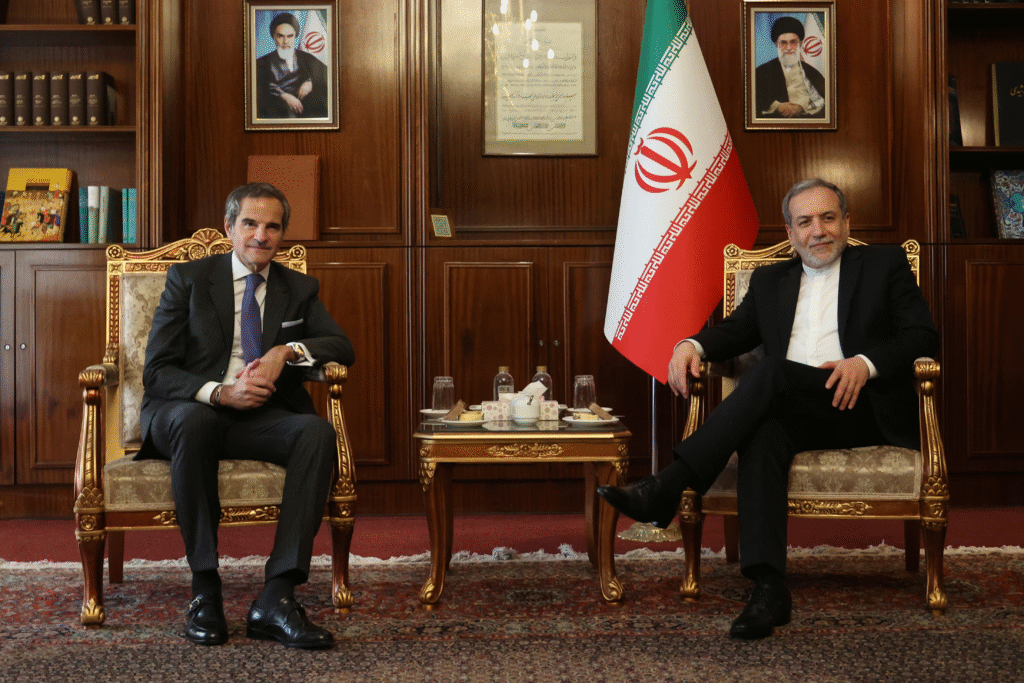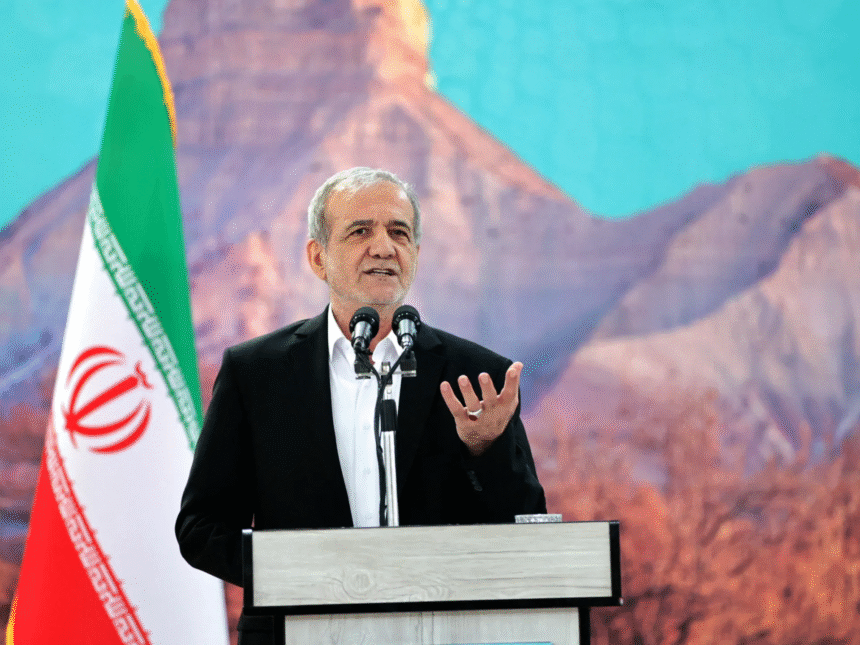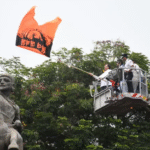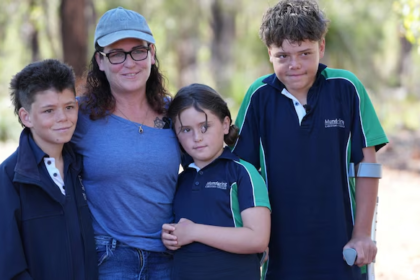Iran Agrees to Cooperate with IAEA Amid Rising Tensions—Warns of ‘Risky’ Inspections in 2025
Iran agrees to cooperate with IAEA in 2025 but warns inspections may be risky amid rising regional tensions and nuclear security concerns
DUBAI, July 12 (Reuters) – Iran plans to cooperate with the U.N. nuclear watchdog despite restrictions imposed by its parliament, Foreign Minister Abbas Araqchi said on Saturday, while stressing that access to its bombed nuclear sites posed security and safety issues.

A new law passed in Iran following last month’s Israeli and U.S. bombing campaign stipulates that inspection of Iran’s nuclear sites by the International Atomic Energy Agency (IAEA) needs approval by the Supreme National Security Council, Iran’s top security body.
The Israeli and U.S. strikes targeted a nuclear programme which Western countries have long said was aimed at building an atomic weapon. Iran has long said its nuclear programme is purely peaceful.
Any negotiations over Iran’s future nuclear programme are likely to require its cooperation with the IAEA, which angered Iran last month by declaring on the eve of the Israeli strikes that Tehran was violating non-proliferation treaty commitments.
“The risk of spreading radioactive materials and the risk of exploding leftover munitions … are serious,” state media cited Araqchi as saying. “For us, IAEA inspectors approaching nuclear sites has both a security aspect … and the safety of the inspectors themselves is a matter that must be examined.”
While Iran’s cooperation with the nuclear watchdog has not stopped, it will take a new form and will be guided and managed through the Supreme National Security Council, Araqchi told Tehran-based diplomats.
“The IAEA’s requests for continued monitoring in Iran will be … decided on a case-by-case basis by the Council with consideration to safety and security issues,” Araqchi said.
Iran will not agree to any nuclear deal that does not allow it to enrich uranium, Araqchi reiterated. Iran would only agree to talks limited to its nuclear programme and not encompassing defence issues such as its missiles.
Axios cited sources on Saturday as saying Russian President Vladimir Putin had voiced support for the idea of an accord in which Tehran would be barred from enriching uranium. Iran’s semi-official news agency Tasnim quoted an “informed source” as saying Putin had not sent any such message to Iran.

Speaking to the state news agency IRNA, Araqchi said Iran was carefully considering the details of any renewed nuclear talks with the U.S. and seeking assurances that Washington would not again resort to military force. “We are in no hurry to enter into unconsidered negotiations,” he added.
Araqchi also said any move by Britain, France and Germany to reimpose international sanctions on Iran through a so-called “snapback” mechanism under an earlier nuclear deal would “end Europe’s role” in Iran’s nuclear issue.
Under the terms of a U.N. resolution ratifying a 2015 nuclear pact, the three European powers could reimpose United Nations sanctions against Tehran by October 18, 2025.
Tehran, July 2025 — In a significant diplomatic statement, the Islamic Republic of Iran has confirmed that it will continue its cooperation with the International Atomic Energy Agency (IAEA). However, Iranian officials have issued a stern warning that on-ground inspections of nuclear facilities may pose risks, both to the inspectors and the stability of the region.
The announcement comes as part of an ongoing dialogue between Iran and global nuclear regulators, in the shadow of renewed tensions in the Middle East, especially involving Israel, the United States, and Gulf nations. Iran’s stance highlights a complicated balancing act between demonstrating transparency and protecting national sovereignty and security.
“Iran remains committed to peaceful nuclear development. We are open to cooperation with the IAEA within the framework of international law. However, any inspection missions must be weighed against growing security concerns.”
Iran’s position has drawn global attention as the IAEA continues its efforts to verify compliance with nuclear non-proliferation obligations under the Joint Comprehensive Plan of Action (JCPOA)—the 2015 nuclear deal that the U.S. exited in 2018 and has yet to rejoin.
Regional Military Activity: With escalations between Hezbollah and Israel, and ongoing U.S. naval activity in the Strait of Hormuz, Iran views international travel and sensitive site visits as potential security liabilities.
Sabotage Threats: Iran accuses foreign intelligence agencies—particularly Israel’s Mossad—of targeting its nuclear scientists and facilities. Tehran is concerned that the presence of IAEA inspectors may be exploited for surveillance or covert operations.
Domestic Political Pressure: Hardliners within Iran’s government and military have increased pressure on President Ebrahim Raisi’s administration not to appear weak before Western agencies, which they often portray as biased.
Cybersecurity Vulnerabilities: Past cyberattacks like the Stuxnet virus—which targeted Iran’s Natanz facility—have made Iran extremely cautious about allowing access to digital systems and facility infrastructure.
The IAEA, headquartered in Vienna, responded cautiously. Director General Rafael Grossi emphasized the importance of access, verification, and independence, stating:
“We take security seriously but will continue to engage with Iranian counterparts to ensure our inspectors can perform their duties safely and effectively.”
While the United States and EU nations welcomed Iran’s stated willingness to cooperate, they also raised concerns about the “conditions” attached to inspections. Washington has urged Tehran to provide “unfettered access” to all declared and undeclared nuclear sites.
The renewed focus on Iran’s nuclear program in 2025 follows a series of enriched uranium reports and satellite imagery indicating continued activity at Natanz, Fordow, and other high-security locations. While Iran maintains that its program is for peaceful energy development, critics argue the country is rapidly shortening its “breakout time” — the time needed to produce a nuclear weapon.
Furthermore, this dialogue occurs against the backdrop of an uncertain JCPOA future, stalled diplomacy, and increasing tensions between Tehran and Tel Aviv.
Read Also : Massive Shiv Aarti at 12 Iconic Forts Built by Shivaji Maharaj to Celebrate Heritage Status Recognition







